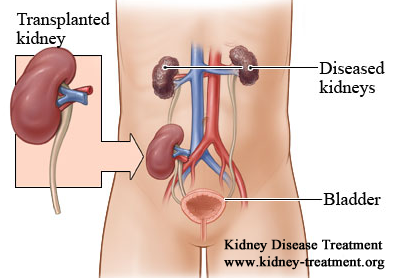Complications of Kidney Transplant
2014-02-11 07:54
 Kidney transplant is a common treatment for all kinds of chronic kidney disease patients. When their kidneys lose their functions completely or they don’t want to have dialysis, they may choose to have a kidney transplant.
Kidney transplant is a common treatment for all kinds of chronic kidney disease patients. When their kidneys lose their functions completely or they don’t want to have dialysis, they may choose to have a kidney transplant.
Kidney transplant is a effective treatment, which put a healthy kidney into patients’ body, and a successful kidney transplant can help people to live a normal life again. So lots of patients want to have a kidney transplant to prolong their lives. However, the cost for a kidney transplant is expensive and it is difficult for patients to get a donator and get a matched kidney. Since patient who get a suited kidney transplant, they may also have some complications, which will affect them.
The common complications for a kidney transplant patient may include:
1. Bleeding
Bleeding is the most common complication for a kidney transplant patient in their early time, which is formed in renal blood, a transplanted kidney rupture and a ruptured blood vessel graft. When kidney transplant patients suffer from these complications, they may feel severe pain in kidney graft area, bladder irritation, shock, graft area uplift, local tenderness and rebound tenderness.
2. Infections
Infections after kidney transplant is a common reason for the death od kidney transplant. In general, the infections include urinary system infection, oral infection, incision and skin infections and pulmonary infection. And these infections will cause severe effects on patients.
3. Rejection reaction
Rejection is the cause of the failure of kidney transplant, and acute rejection in most cases can be reversed. The performance of acute rejection is transplanted kidney swelling, pain, fever, increased blood pressure, reduced volume of urine and elevated creatinine level or unreduced creatinine level. Chronic rejection can be occurred at the months or years after kidney transplant, which has the symptoms of chronic kidney damage, elevated blood pressure, reduced urine volume and elevated creatinine level.
4. Urinary leakage
Urinary leakage is usually caused by anastomotic suture, stitch too thin, embedding poor and poor renal technology, all these will affect the prognosis of kidney transplant.
5. Acute tubular necrosis
Acute tubular necrosis is often inevitable after kidney transplant, which is mainly caused bu postoperative urine, fever and un-decreased creatinine level.
All these complications will cause bad effects on kidney transplant patients, so people with kidney disease should have prompt and effective treatment to prevent their end stage kidney failure, which can help them avoid kidney transplant. So early and effective treatment will be more helpful and important for kidney disease patients.
- Tag: Kidney Failure Symptoms
- Pre: Will Kidney Failure Cause Atrophy of Kidney
- Next: Causes of Renal Anemia for Kidney Failure Patients
